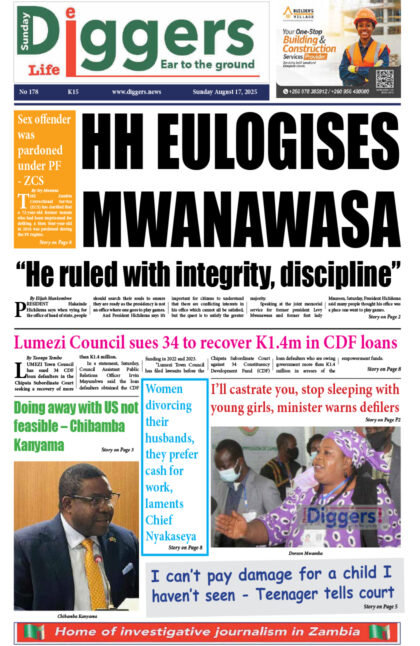The Zambia Institute of Chartered Accountants (ZICA) says there is need to isolate and condemn the rogue accountants and not the entire profession in public financial management.
And ZICA have cautioned government against rolling out the impending Sales Tax next April in the absence of sufficient information for all stakeholders.
Speaking during the ZICA President’s fourth quarter media briefing on various national matters, ZICA president Jason Kazilimani said there was need for rogue accountants, particularly those who are responsible for theft of public funds, to be isolated and condemned rather than blame the entire profession.
This comes in the wake of several public sector accountants who have been suspended or dismissed in several government ministries for gross abuse of public funds this year.
Among the several cases, government, through the Civil Service Commission, last month dismissed three accounting staff for fraud and theft of public funds at the Ministry of Housing and Infrastructure Development.
But Kazilimani insisted that the rogue accountants needed to be weeded out.
“It is important to appreciate the strategic role accountants play in the financial stewardship of the country and, therefore, require the support of the public. While we appreciate the difficult task the public sector accountants play under difficult circumstances, as a professional body, we expect the public sector accountants to work in accordance with the international code of ethics for professional accountants. It is, therefore, important to isolate and condemn the rogue accountants and not the entire profession,” Kazilimani told the media in the ZICA board room, Tuesday.
He also stressed the need for controlling officers in government ministries to create an environment that should send an early warning signal to detect any variation from expected behaviour.
“While we welcome the dismissal of the accountants emanating from these scandals, we think that more needs to be done, including recovery of the stolen funds as provided for in the Public Finance Management Act of 2018. There is need for the controlling officers to create a control environment that should send an early warning signal to detect any variation from expected behaviour,” Kazilimani argued.
“Further, unless there are serious questions of competence, we do not believe that these accountants misappropriated the funds without the knowledge of their superiors.”
And Kazilimani advised against rushing to introduce the controversial Sales Tax next April in the absence of sufficient information for all stakeholders.
Government has vowed to re-introduce Sales Tax as proposed in the 2019 national budget from April 1 next year despite stiff resistance from a broad range of stakeholders, in a bid to avoid paying VAT refunds, especially to mining companies, who are still owed around US $600 million.
“As we consider the introduction of Sales Tax, it is important to take stock of how the system will be implemented with minimal interruption to business and the economy. Currently, there is lack of information about how it will be implemented, and at what rate, thus leading to investor anxiety and uncertainty in corporate planning, budgeting and forecasting,” observed Kazilimani.
“There are fears that most businesses, especially the mines, may react by scaling-down their operations. The lack of certainty in the Sales Tax system negates the fundamental principle of a good tax system. We think that in the absence of further consultation and thorough research, the proposed system should not be rushed, but instead the (Finance) Minister (Margaret Mwanakatwe) must carefully study the rates to be applied, the period of transition and the framework for the Sales Tax system.”
























